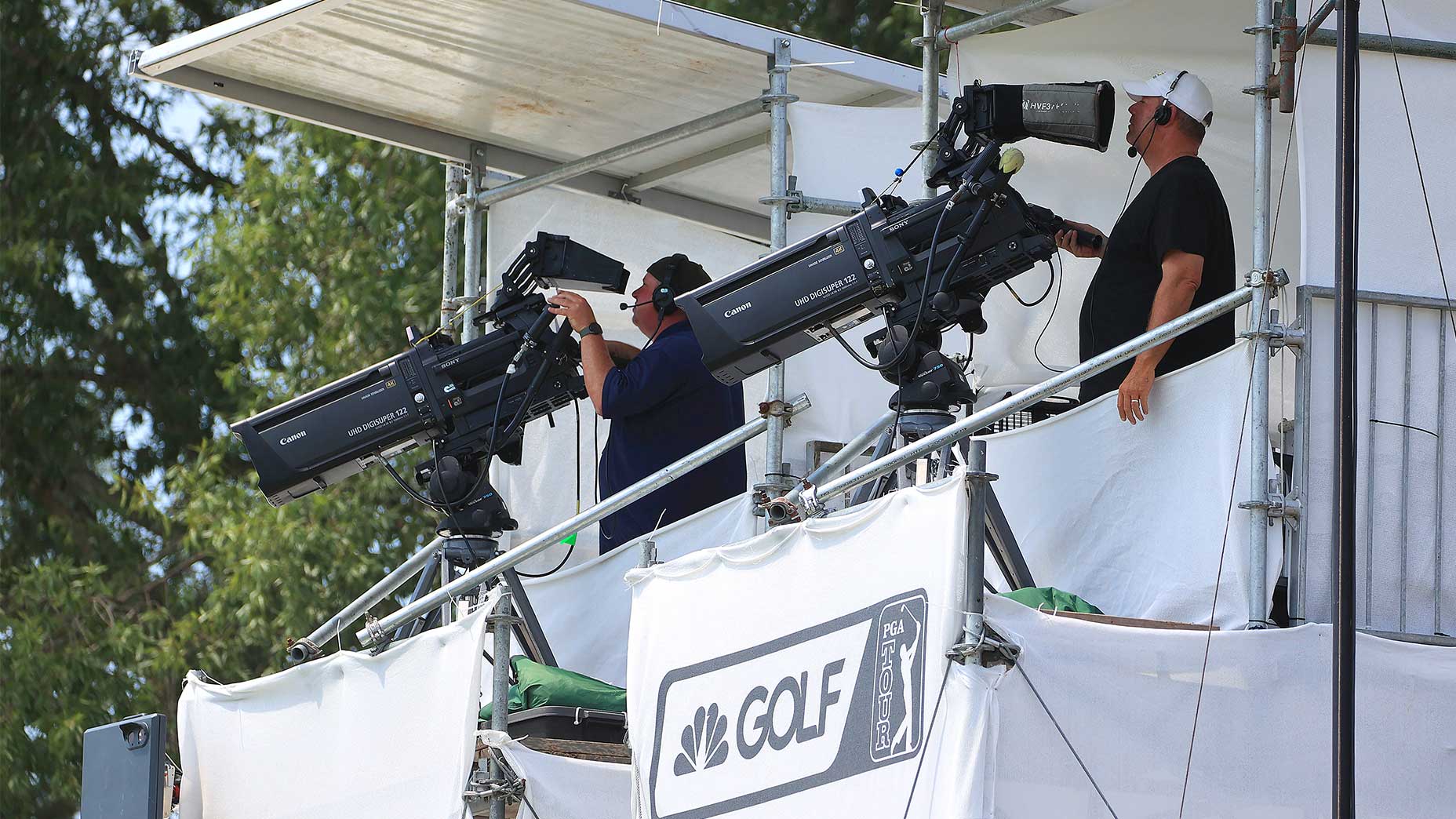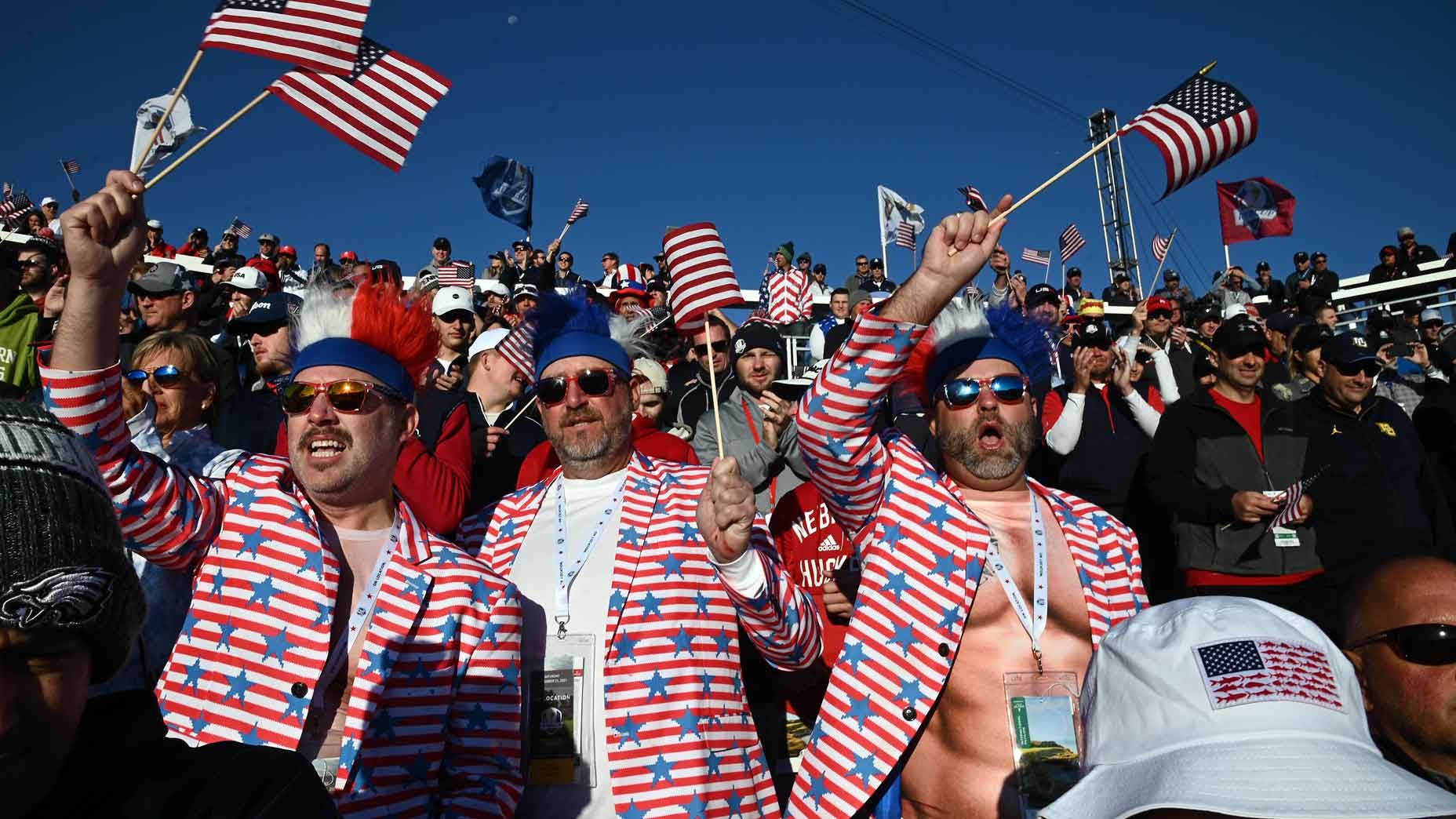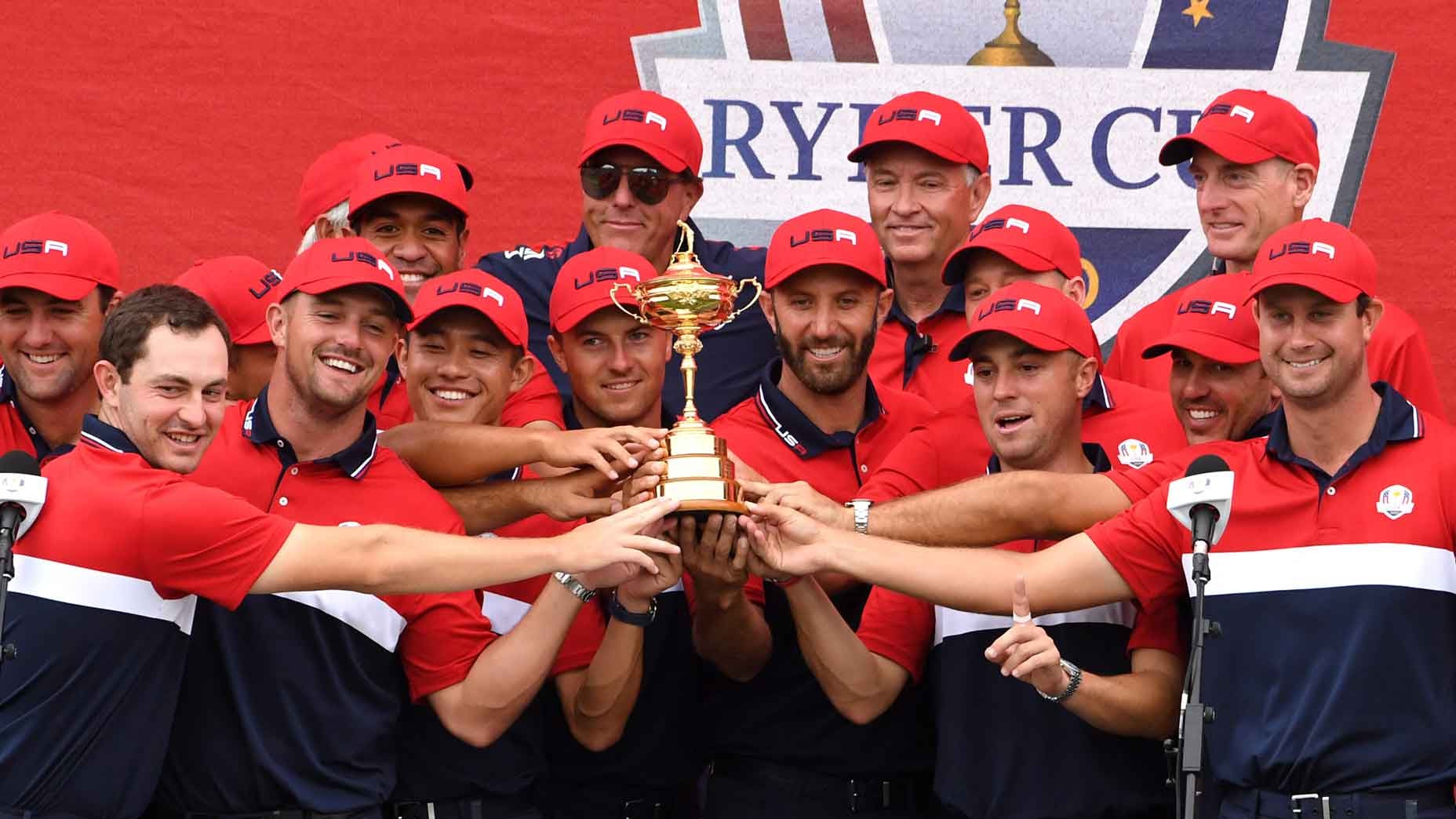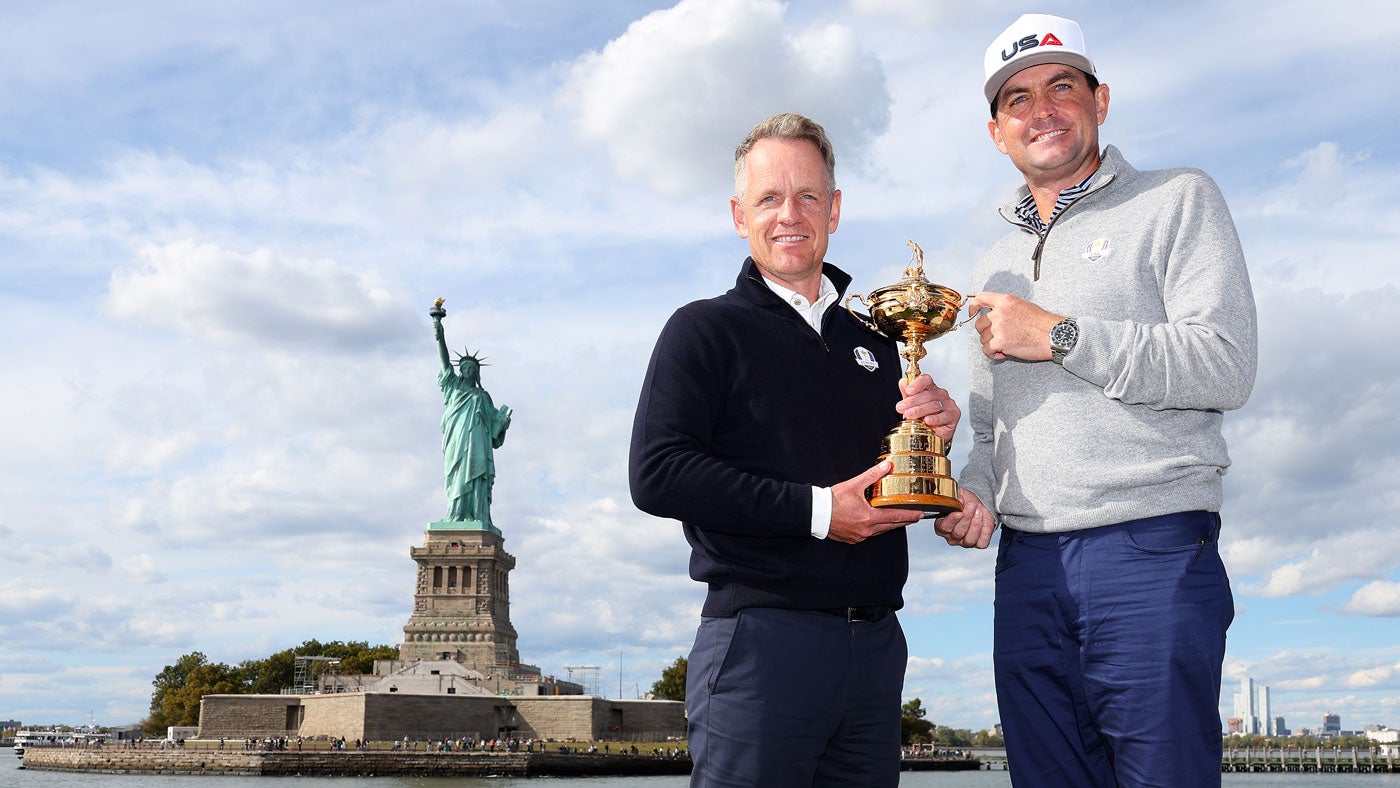‘Bombarded with commercials’: Ryder Cup TV viewers blast ad onslaught
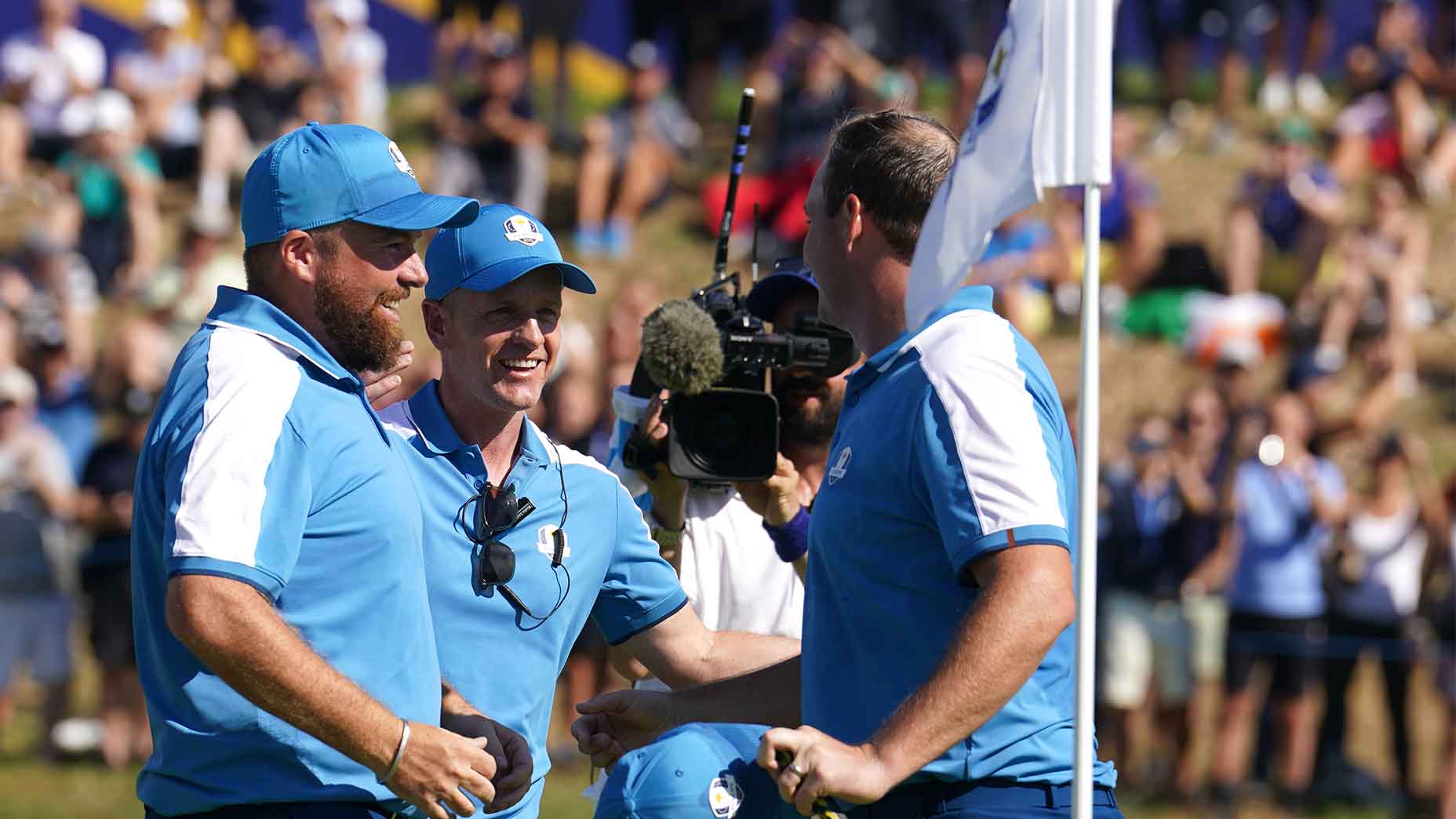
NBC's early Friday morning Ryder Cup coverage drew the ire of golf fans.
Getty Images
ROME — If you tuned into the Ryder Cup from the United States in the wee hours Friday morning, you didn’t do so by accident.
Rome is six hours ahead of the East Coast of the U.S., and nine hours ahead of the West. With the first matches going off shortly before 8 a.m. ET, the Cup found itself squarely in an American television twilight zone — too late for the Pacific timezone to tune in, and too early for the Eastern.
The truth is that only the hardest of diehards either rose in the middle of the night on Friday or guzzled some caffeine and prolonged their Thursday evenings to watch. And for those who did, the end result should have been a sort of golf utopia: a place where sickos were rewarded for their bad decisions with beautiful, glorious middle-of-the-night Ryder Cup golf.
But when play finally began around 1:30 a.m. ET, there was no pot of gold waiting on the other side of this midnight rainbow — only commercials.
The USA Network, responsible for covering the first 10-plus hours of the Ryder Cup on Friday, delivered an onslaught of advertisements to viewers in those opening few hours, enraging the golf internet and resurrecting the neverending debate about the state of golf-viewing in the U.S.
As the night inched toward dawn, things didn’t get much better. One by one, viewers logged online to voice their displeasure with the pace of the NBC-run telecast, the technical gaffes that preempted key moments in matches, the moments that weren’t shown at all, and, most pressingly, the overall number of advertisements shown.
“Biggest event in golf happens every two years and we are just bombarded with commercials,” tweeted Aaron Flener, a caddie to PGA Tour pro JT Poston. “Gotta be a way to offer a commercial-free version that shows every shot that people can pay for.”
Of course, it’s worth remembering the cycle that has created today’s golf TV product. The Ryder Cup sells a lot of advertising, which makes NBC a lot of money. Because the Ryder Cup sells a lot of advertising, NBC pays a lot of money to the governing bodies (in this case the PGA of America and DP World Tour) for the rights to broadcast the event. The money the governing bodies receive from the networks allows the governing bodies to pay their players and employees. In the age of LIV, player payment is more important than ever, which makes the existence of golf TV advertisements equally as important. With Friday morning’s early commercial onslaught, it’s also worth noting that NBC traditionally loads its commercials early on in its broadcasts to show fewer of them as the day progresses.
Traditionally, golf’s biggest broadcasters have leaned on the argument that commercials are a business matter. The cost of rights is expensive, the networks say, and while NBC/CBS or anyone else would love to show golf on a commercial-free loop, it’s not financially feasible to do so. The number of advertisements is the absolute least the network can show and still make money from the agreement.
But that argument falls apart with the Ryder Cup. Yes, NBC pays a rights fee to the PGA of America, requiring the network to sell some advertising to underwrite the cost of putting on the broadcast. But is it really believable that NBC is as cash-strapped by its agreement with the one-event Ryder Cup as it is by its deals with the USGA and PGA Tour? And if that is the case, why is NBC spreading itself so thin to sign these agreements in the first place that it’s forced to show such a compromised product?
It’s fair to say that business is playing a role in the commercial proposition, particularly in this era in pro golf. But NBC has far more expensive weekends on the golf calendar than this weekend, when it will use an internationally-produced “World Feed” for its Ryder Cup broadcast, saving millions in production costs versus a typical week, and when no one will be responsible for divvying money to players. And business isn’t responsible for some of the smaller issues that bothered fans on Friday, like a constant scorebug that was updated too early, tipping the results of matches to come.
But it’s also fair to point out that the Ryder Cup is supposed to represent one of the few breaks from commercial overkill on the golf calendar. This is, after all, the one event in golf that is biennial, resisting the siren call of millions in new money for an every-year affair in the name of tradition. During Thursday’s opening ceremony — which was proudly broadcast to “100 million people around the world,” per the ceremony’s emcee — stakeholder after stakeholder stepped to the podium to celebrate this week as a break from professional golf’s routine; a reminder of the things essential and special about the sport.
The players and caddies clearly believe that to be true. They happily participate in this event every other year for free, receiving a stipend and some charitable donations in return for a week of their highly televised time.
“I didn’t even know we got money for charity,” Jon Rahm admitted on Wednesday.
The players agree to this arrangement because they love the Ryder Cup, and because they would give anything to share in this tradition. Because, as Rahm said, the only thing that matters to him is winning.
That’s why so many people sacrificed so many hours of sleep on Friday morning to tune into the action, and why so many more were miffed when the broadcast wouldn’t show it to them.
Yeah, making money is an important thing. But does it have to be the only thing?


